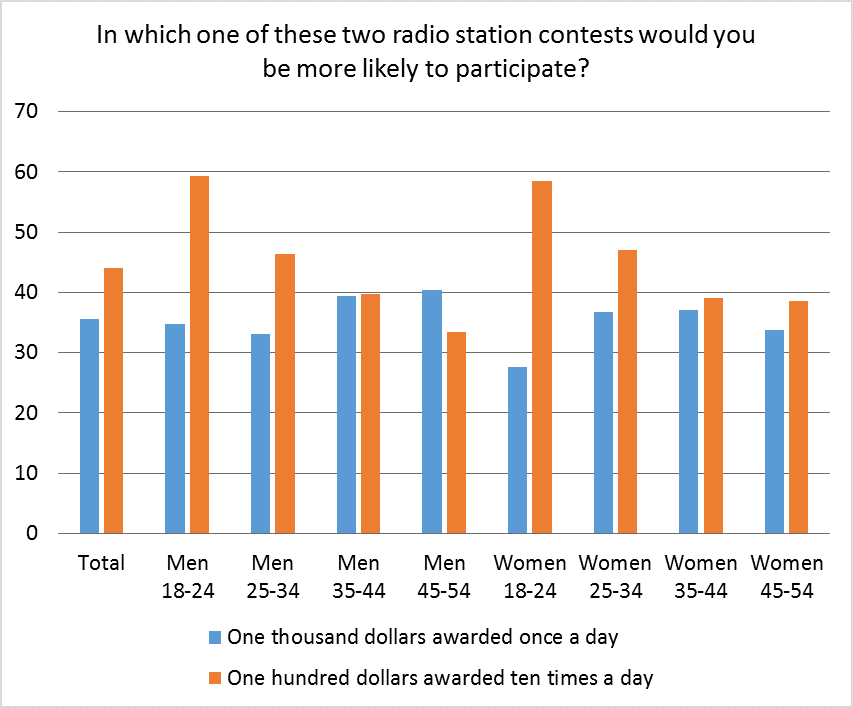What’s the Better Contest Prize?
We’ve shown previously that most likely ratings participants respond positively to radio station contests. So, contesting remains an important component in any programming and marketing team’s toolset. The challenge is building a contest that will influence listener behavior (and, more to the point, ratings-participant behavior) while not spending any more than necessary.
In our most recent NuVoodoo Ratings Prospects Study we faced off the concepts of a contest that gave away one thousand dollars once a day versus another that gave away one hundred dollars ten times a day. The results – especially among 18-34’s – may surprise you. In fact, even among 35-54’s the results show similarly-sized groups backing the concepts of the bigger payout once a day versus smaller prizes more often.
While $1,000 might not be a life-changing windfall to some 35-54’s, it surely would be for many 18-34’s. But, how many of us would turn up our noses at an extra $100 – especially if it was easy to enter and play and we perceived that our chance of winning was elevated because it seemed to happen frequently?
Even in 2016, $100 is a nice prize – in a vacuum. Of course, that $100 sounds paltry if a direct competitor ups the ante to $500 or $1,000. But, our point here is that there’s drawing power in spreading the contest prize amounts more thinly – as long as it’s coupled with higher frequency (and the resulting perception of a greater chance of winning).
Behavioral economics suggests that the best design for a contest combines easily-won smaller prizes with the longer-term lure of a big payout down the road – appealing to both our desire for immediate gratification and the greater imagination value of a truly life-changing prize. Group collective contests and single-station insured prizes can achieve this structure if promoted and executed correctly.
At NuVoodoo we’ve studied the lure of dozens and dozens of contest prizes and the perceptions of a variety of contest entry methods and arm our clients with what we’ve learned. We’ve learned which big-ticket prizes fail to really move the meter and which contest entry methods are most effective at getting the most listeners engaged in contests most quickly.
In radio we’re accustomed to spending copious amounts of time and money to get a station’s music dialed in just right. Contests and the prizes being given away deserve as much time and consideration to maximize influence while minimizing expenditure.





